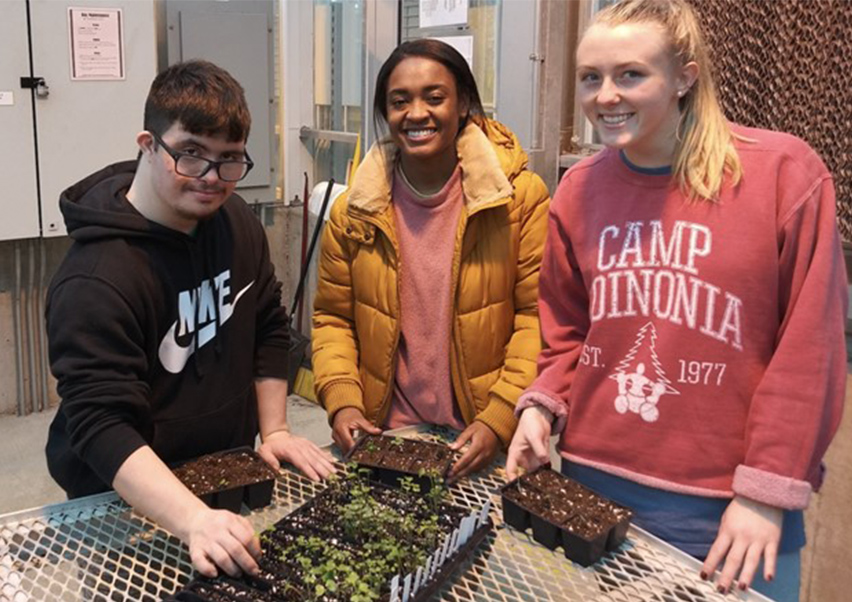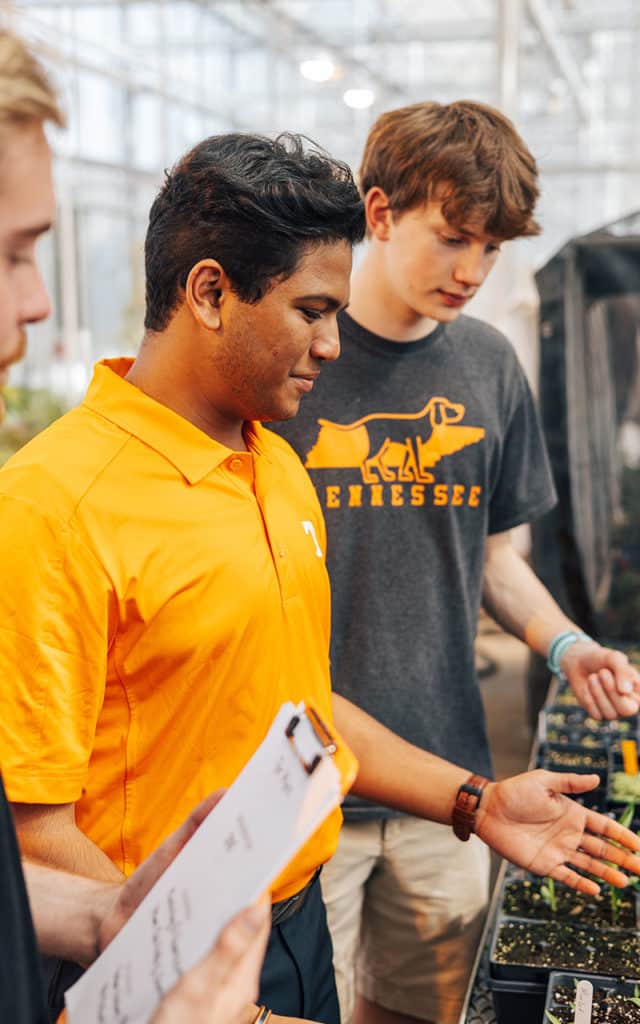Online Graduate Certificate: Horticultural Therapy
Herbert College of Agriculture
Program Overview
Do you have a goal of becoming a leader in horticultural therapy? The University of Tennessee, Knoxville offers a Graduate Certificate in Horticultural Therapy. This program is offered to students with a bachelor's degree or who are currently enrolled in a bachelor program. This unique hybrid program at the Herbert College of Agriculture consists of online classes and a limited (and required) one-week residential program. Once completed, students will have necessary nine credit hours of horticultural therapy coursework required for professional registration from the American Horticultural Therapy Association (AHTA.)
Credit Hours
9
Cost Per Credit Hour*
In-State $439
Out-of-State $514
Limited Residency
Required
Admission Terms
Fall
*Cost per credit hour is an estimate based on maintenance and university fees. Some programs may have additional course fees. Please contact your department for further information on related fees, and visit Tuition and Fees in Detail at One Stop.

Become a Leader in Horticultural Therapy
The Horticultural Therapy Certificate Program at the University of Tennessee Herbert College of Agriculture offers a robust learning experience in a fully online accelerated format. Students will learn about horticultural therapy techniques, types of programs, and how to develop a program themselves. An in-depth study of stakeholders, theoretical foundations, adaptation methods, and assessment strategies for programs replace with program assessment strategies are integral parts of the coursework. Participants will also learn how to design accessible outdoor and indoor spaces. The program consists of courses and a limited one-week residential program.
Asynchronous & Synchronous Instruction
This certificate is a fully asynchronous program. Courses are taught using a combination of recorded video sessions, monitored discussions, and interactive student lessons.
The goal of the certificate program is to educate students on the using horticulture as therapy. Students completing this certificate program will have completed nine hours of horticultural therapy coursework required for professional registration from the American Horticultural Therapy Association (AHTA). Students interested in pursuing professional registration from the AHTA may need additional college coursework and complete a supervised internship to apply for professional registration. For more information about professional registration requirements, visit the AHTA website.
Prerequisites
Applicants to the Horticultural Therapy Certificate Program must possess a bachelor’s degree or be a currently enrolled University of Tennessee student.
Objectives:
- Define horticultural therapy and discuss how horticultural therapy is a profession.
- Discuss how horticultural therapy relates to other allied healthcare professions.
- Explain how evidence-based practice contributes to the profession of horticultural therapy and learn how to use evidence-based practices to enhance your skills as a practitioner.
- Identify areas for improvement needed in the profession of horticultural therapy.
- Identify how to assess clients for horticultural therapy interventions.
- Work with treatment teams to develop horticultural therapy program goals and objectives to meet the assessed needs of clients.
- Plan and implement horticultural therapy sessions for various populations and medical conditions.
- Describe the professional registration process and understand the importance of participating in professional healthcare associations.
- Document client progress in horticultural therapy programs.
- Discuss the importance of research and demonstrate skills to conduct research related to measuring the impact of horticultural therapy programs.
Featured Courses
The Horticulture Therapy Certificate program consists of the following three online courses and a one-week residential session:
PLSC 411: Introduction to Horticultural Therapy
This course provides an introduction of the horticultural therapy profession. Students will develop a basic understanding of the history of the horticultural therapy profession. This course includes additional topics such as populations served and the different environments in which horticultural therapy can take place. This online course will consist of one synchronous and two asynchronous class sessions per week. The course will be completed in 7 weeks.
PLSC 412: Horticultural Therapy Programming & Techniques
This course provides an in-depth review of horticultural therapy programming and techniques. Students will be able to describe the program planning process and different techniques that can be utilized when implementing programs for a variety of audiences. This online course will consist of one synchronous and two asynchronous class sessions per week. The course will be completed in 7 weeks.
PLSC 413: Horticultural Therapy Program Management
This course provides an in-depth review of program management. Students will understand the importance of budgeting, marketing and other key components to running successful horticultural therapy programs. Students will also explore risk management and develop a risk management plan for horticultural therapy programs. The online portion of this course will take part over six weeks with two weekly sessions totaling three hours per week. A five-day residential period will be held on week seven at the University of Tennessee in Knoxville, TN.

Horticulture Therapy Enhances Lives
Horticultural therapy is a long-standing therapeutic tool for vocational training, physical rehabilitation, and improvement of cognitive abilities. The UT Garden’s Horticultural Therapy Program was created in 2012, by Derrick Stowell, who received the 2022 American Horticultural Society’s Horticultural Therapy Award.

Horticultural therapy is an important intervention to help improve health and well-being. The pandemic has helped to spark a renewed interest in the use of horticultural therapy.
–Derrick Stowell, adjunct assistant professor and education and horticultural therapy program administrator